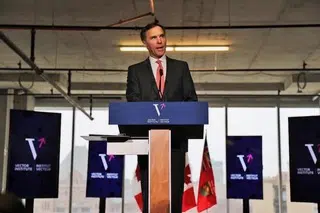
Liberals’ tax plan is well-intended, poorly executed
KAMLOOPS — For a man who is so media savvy, Justin Trudeau’s ham-handed handling of tax reforms is surprising.
He faces a major popularity crisis with his plan to restrict so-called “tax sprinkling” — in which business owners can lower their tax rate by “hiring” family members, whether or not they do any actual work. Stricter age requirements would be put in place.
There are other measures included in the plan, but the media focus has been on the perception that mom and pop businesses will face tough times under the new tax regime.
The usual negative nabobs of media negativism are painting a picture of destruction of the bulwark of the Canadian economy, as if the little guys of business will be broken. But is that reality?


